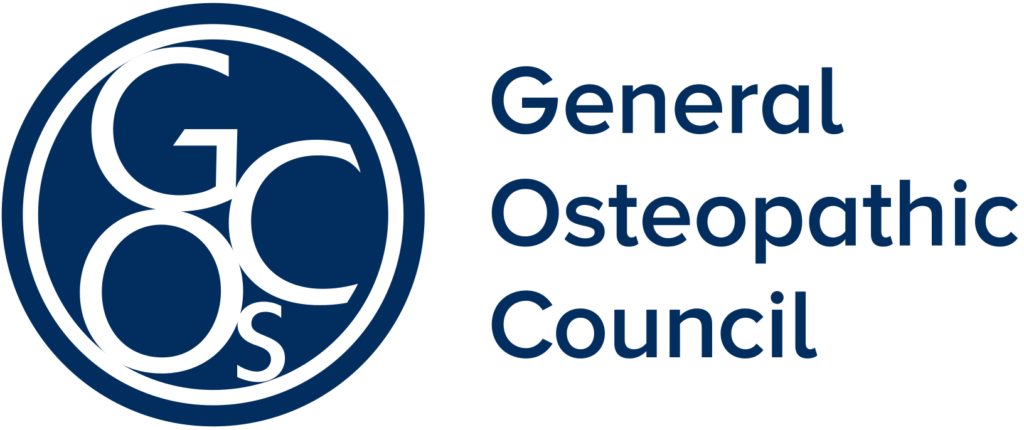Frozen Shoulder (Adhesive Capsulitis)
Living with a stiff, painful shoulder that refuses to move smoothly is incredibly frustrating. When the shoulder capsule tightens and scar tissue forms, you may have adhesive capsulitis (frozen shoulder) – a condition characterised by severe pain and loss of motion.
Whether your shoulder problem began after an injury or gradually without warning, everyday tasks like dressing or reaching overhead can become agonisingly difficult.
At Thomas Wynn-Jones, an experienced Dubai osteopath, we take a gentle, hands-on approach to ease shoulder stiffness. Our treatment focuses on natural methods (joint mobilisations, soft tissue work and exercise) to restore mobility and relieve pain.
We help patients from Jumeirah to Downtown Dubai and Business Bay recover full shoulder function in a natural, holistic way.
Book a Consultation
EXCELLENTTrustindex verifies that the original source of the review is Google. Always a good experience with Thomas and the team! 😃Posted onTrustindex verifies that the original source of the review is Google. As someone who frequently refers clients for specialised care, I can confidently say that Thomas is an exceptional osteopath, particularly for pre and postnatal women and their babies. I've consistently received positive feedback, highlighting his expertise and gentle approach. Thomas possesses a deep understanding of the unique physiological changes during pregnancy and the challenges new mothers face. He's incredibly adept at addressing common pre and postnatal discomforts, helping alleviate pain, improve mobility, and support overall well-being. He has an ability to calmly assess and gently treat babies for issues ranging from feeding difficulties to colic, providing great support. I wholeheartedly recommend Thomas. He's a true asset to the well-being of families.Posted onTrustindex verifies that the original source of the review is Google. Really experienced dedicated Osteopath with a wide range of manual approaches and consistently looking to upgrade his skillset.Posted onTrustindex verifies that the original source of the review is Google. Thomas is a highly professional osteopath with a great in depth knowledge and experience. He has treated my entire family of four for several years. Managed to solve quite some old joint issues from intensive wear and tear of sports. Can only recommend his service and his great personality.Posted onTrustindex verifies that the original source of the review is Google. Went to Thomas for a lower back pain and he was fantastic in solving my concerns. He is really gentle and I felt comfortable. Will definitely recommend him for anyone looking for an Osteopath!Posted onTrustindex verifies that the original source of the review is Google. Thomas took great care of me and my family. Highly recommended.Posted onTrustindex verifies that the original source of the review is Google. Thomas is an excellent Osteopath who use an integrative approach to his treatment with excellent technique in a gentle and safe manner. I highly recommend ThomasPosted onTrustindex verifies that the original source of the review is Google. Thomas is well regarded and runs a professional clinic. He ensures continuous professional development and learning to keep skills up to date.
What is Frozen Shoulder (Adhesive Capsulitis)?
Frozen shoulder occurs when the connective tissue “capsule” around the shoulder joint thickens and tightens. This causes progressive stiffness and pain. In adhesive capsulitis, the synovial lining of the capsule becomes inflamed and forms adhesions (bands of scar tissue).
Unlike a rotator-cuff tendon tear or impingement (pinched tendon), frozen shoulder usually causes pain even at rest and drastically limits movement. In a rotator-cuff injury you may still manage to lift your arm, but with adhesive capsulitis the pain is dull/aching and reaching above shoulder height often becomes impossible. Over time (often many months) frozen shoulder symptoms may eventually ease, but without treatment the condition can last 1–3 years.

Thomas Wynn-Jones
BSc, BOst, Registered Osteopath UK & UAE
About Thomas
Meet Your Expert Osteopath in Dubai
Thomas Wynn-Jones is a seasoned osteopath in his 20th year of practice, he was trained at the British School of Osteopathy (now the University College of Osteopathy) and registered with the General Osteopathic Council in the UK plus the DHA in Dubai. He specializes in providing holistic healthcare solutions for patients of all ages, including sports injury management. His diverse expertise covers various osteopathic approaches, such as cranial, structural, and visceral osteopathy. Thomas’s dedication extends to treating a range of conditions, from low back and neck pain to pregnancy-related discomfort, babies, animals and headaches.
Stages of Frozen Shoulder
Frozen shoulder typically progresses through three phases:
Freezing (Painful) stage
Any shoulder movement causes sharp pain and range of motion steadily decreases (usually lasting 2–9 months).
Frozen (Stiff) stage
Pain may lessen, but the shoulder is very stiff. Daily activities become extremely difficult (typically 4–12 months).
Thawing (Recovery) stage
Gradual return of normal motion occurs (usually 5–24 months). During this phase shoulder flexibility slowly improves.
Common Causes and Risk Factors
Often the exact trigger is unknown, but some factors make frozen shoulder more likely. Keeping the shoulder immobilised after injury or surgery (e.g. fracture or rotator cuff repair) greatly increases the risk.
Certain health conditions also contribute, most notably diabetes and thyroid disorders. In fact, people with diabetes are much more prone to adhesive capsulitis. Other risks include age (40–60, especially women) and, to a lesser extent, cardiovascular disease or Parkinson’s disease.
In practice we assess each patient’s history (injury, medical conditions, posture) to identify any contributing factors.
Our Osteopathic Treatment Plan
Thomas Wynn-Jones’s osteopathic approach is tailored to your stage of frozen shoulder. Key elements include:
Joint mobilisation
Gentle hands-on movements to stretch the stiff shoulder capsule and improve range of motion.
Soft tissue therapy
Massage and muscular release work to relax tight shoulder and chest muscles.
Neural mobilisation
Exercises to ease any nerve tension around the shoulder girdle.
Postural rehabilitation
Advice and targeted exercises to correct posture and shoulder mechanics for long-term relief.
We combine these techniques with carefully prescribed exercises. In the freezing stage our focus is on pain relief (often using ice and very gentle stretching), while in the frozen stage we emphasise increased mobilisation and strength.
Once your shoulder begins thawing, we progress to more active rehabilitation. Throughout, Thomas provides personalised care and guidance – you’re not just a number, but a unique patient.
Ready to reclaim your shoulder mobility? Book your consultation in Dubai today! Thomas Wynn-Jones’s Dubai clinic on Al Wasl Road (Al Bada’a) serves patients across the city – from Jumeirah and Downtown to Business Bay and Satwa. Call or WhatsApp us to schedule a visit and start your natural recovery from frozen shoulder.
Practicing At
Browns & Co
343 Al Wasl Rd – Al Bada’a – Dubai – United Arab Emirates
Tel: +971 5 4544 5399
Thomas’s Direct Line: +971 50 533 3669
This is Thomas’s personal number for calls and WhatsApp. Please note he may be with patients during the day, so replies can sometimes be delayed.
Email: thomaswynnjones@gmail.com
Reception Desk: +971 5 4544 5399
For faster assistance during working hours, the reception team is usually able to respond more quickly. You are welcome to contact either number at any time. You can call or WhatsApp them on this number. They will get back to you as soon as possible.
FAQs (Featured Snippets)
Is frozen shoulder the same as shoulder impingement?
No. Shoulder impingement involves a tendon rubbing against bone, usually causing pain during arm movement. By contrast, frozen shoulder (adhesive capsulitis) is due to thickening of the joint capsule, leading to widespread stiffness even at rest.
What are common causes of a frozen shoulder?
There may be no obvious cause (idiopathic), but key risk factors include diabetes or thyroid problems, previous shoulder injury/surgery that left the arm immobilised, and being a middle-aged woman. Other conditions like cardiovascular disease can also contribute.
How long does frozen shoulder last?
It can take many months to years. Typically, symptoms worsen for 6–9 months, then gradually improve. Most people recover full motion within 1–3 years, especially with treatment.
Can osteopathy help frozen shoulder?
Yes. Hands-on treatments such as joint mobilisation and stretching exercises are a first-line therapy. Osteopathy (a form of manual physical therapy) can significantly improve shoulder flexibility and reduce pain when done regularly by a skilled practitioner.
What are the stages of frozen shoulder?
There are three phases: 1) Freezing, worsening pain and progressive loss of motion; 2) Frozen, stiffness dominates, pain may ease slightly; 3) Thawing, gradual return of movement.
Request an Online Consultation
A solution to request a specialist consultation, directly from your home, with your smartphone or PC .

REGISTERED WITH

